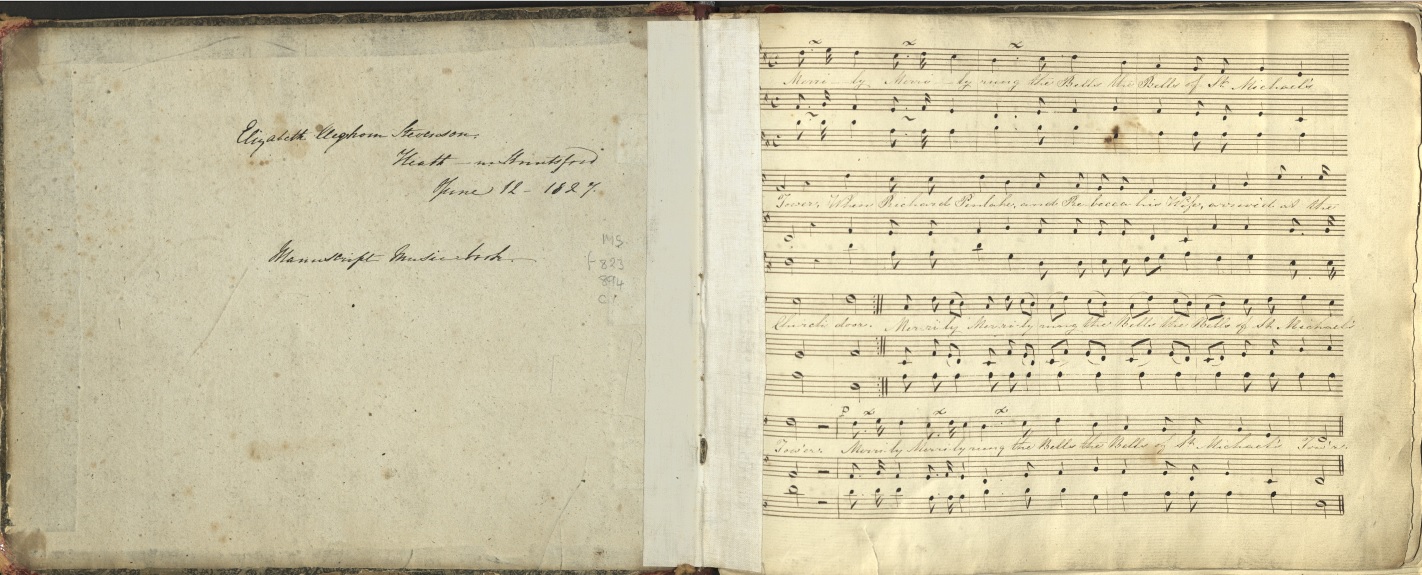Library of the Week: 7th March: We are very happy this week to feature the incredible Manchester Public Libraries. Find out more about their amazing Special and Rare Collections including The Henry Watson Music Library, The Gaskell Collection and Theatre Collections. Thank you very much to Manchester Public Libraries for taking part and we can’t wait to find out more.
Manchester Free Library opened in 1852 and from its inception a policy was adopted of acquiring rare material and Special Collections of local, national and international interest – this gathered pace particularly during the city’s cultural and commercial heyday in the second half of the 19th century . The library now holds around 40,000 items published before 1850, including 30 incunabula. There are also significant collections of Tracts and Private Presses – in addition the Henry Watson Music Library holds around 16,000 rare items collected by Dr. Henry Watson and donated to the city in 1899.
Two especially noteworthy Special Collections are the Theatre Collections which contains around 19,000 playbills – the earliest dates from 1743, the collection being particularly strong from around the mid-19th Century and the Gaskell Collection. This last was donated to the city in 1895 and includes the first published form, both serialized and in volumes of all Mrs Gaskell’s works with the exception of Cranford. The library also holds a number of Gaskell’s letters and a collection of books owned by her including the illustrated book which contains an inscription from her shortly to be husband “let us go somewhere I can have you to myself.”

The Rare Books collections houses a number of herbals, probably the most noteworthy being a first edition of Blackwell’s Herbal (1737). Elizabeth Blackwell was born in Aberdeen in 1707 and secretly married her cousin Alexander – being generous one could call him an “adventurer” – before being forced to leave for London somewhat under a cloud. Establishing his own printing house and thereby falling foul of the London guilds he eventually ended up destitute and was forced into debtors’ prison. With no income and a child to care for, Elizabeth decided she could illustrate a herbal based on many of the plants from the New World in Chelsea Physic Garden – she would then take the illustrations into her husband’s cell for him to provide the captions and descriptions resulting in the beautifully illustrated herbal. She succeeded in securing her husband’s release but failed to reform him completely – some years later he was executed for conspiring against the Crown Prince of Sweden, just as she was on the point of leaving England to join him.
As one would expect, Manchester’s Archives+ collection includes a number of items relating to the Suffrage movement including items relating to the Pankhursts and the now relatively forgotten Lydia Becker. Becker established Manchester as a centre for the suffrage movement and with Richard Pankhurst arranged for the first woman to vote in a British election – the library holds copies of the Women’s Suffrage Journal which she founded, in addition to a United Suffragists banner and poster for the Manchester Women’s Suffrage Demonstration in 1908.

Manchester Public Libraries
‘All images copyright of Manchester Public Library, reproduced with kind permission of the copyright holder.’
You can explore the library’s collections on Discover and find further contact details on their Discover information page.

